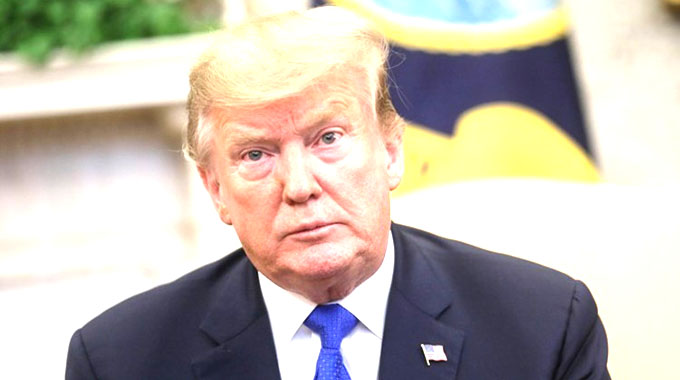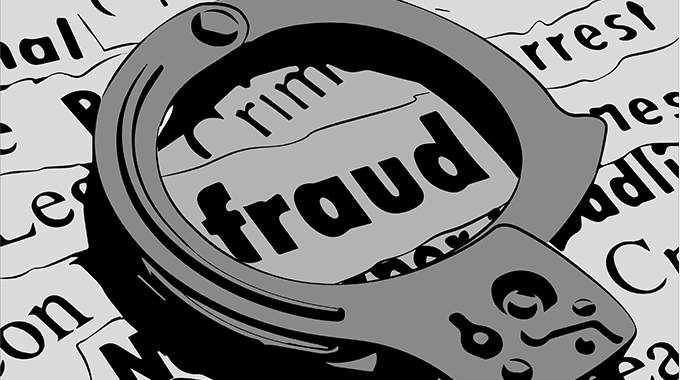How Huawei could survive Trump

Jordan Link Correspondent
The recent spotlight on Huawei, the world’s seventh-largest tech firm, would constitute a public relations disaster for any company.
Earlier this year, the US Justice Department indicted Meng Wanzhou, the tech giant’s chief financial officer, for allegedly defrauding multiple financial institutions in breach of US-imposed sanctions on Iran.
A second indictment claimed Huawei has a bounty system that rewards overseas employees for engaging in industrial espionage.
President Trump signed an executive order on May 15 to ban US telecommunications firms from installing foreign equipment that could potentially threaten national security.
The US government then added Huawei to the Commerce Department’s Entity List, a blacklist that effectively restricts the company’s ability to buy hardware, software and other services from US suppliers — threatening Huawei’s global operations.
With tensions rising between Washington and Beijing, there has been far less analysis of the extent of Huawei’s global reach. In 2018, Huawei posted its highest annual revenue ever — $105,2 billion, a 20 percent increase over 2017 revenue.
According to Huawei’s 2018 annual report, the largest percentage (24,3 percent) of revenue outside China came from Europe, the Middle East and Africa, roughly $25,6 billion.
Just how large is Huawei’s presence in Africa?
Some reports estimate that Huawei has built about 70 percent of Africa’s 4G networks. And the company has already signed a contract for South Africa’s first commercial 5G network — the only formal 5G agreement on the African continent to date.
Given recent controversies and the potential struggle between the United States, its allies and Chinese companies over 5G technology, here are three things to know about Huawei’s Africa operations:
- The Chinese government backs some of Huawei’s Africa contracts.
The China-Africa Research Initiative (CARI), a think tank at Johns Hopkins School of Advanced International Studies in Washington, has closely examined Huawei’s activities in Africa.
As June Sun, a former SAIS-CARI research fellow, details, Huawei’s activity in Africa has Chinese state support, allowing the company “to offer more appealing packages due to their access to funding through China Eximbank.”
Thanks to Chinese government support, Huawei has been able to enter African markets with subsidised prices that easily edge out competitors.
For the 2000 to 2017 period, SAIS-CARI identified 47 different loan-backed projects across Africa involving Huawei contracts. China Eximbank financed 45 of these — the remaining two projects involved supplier’s credits from Huawei itself.
Loans for African projects involving Huawei totalled nearly $3,4 billion — just over two percent of all Chinese loans to Africa during this period. The countries that signed the largest Huawei-related loans were Ethiopia, $834 million; Cameroon, $337 million; Angola, $336 million; Guinea, $273 million and Zimbabwe, $219 million.
SAIS-CARI research reveals that Huawei has worked on projects in 23 African countries: Angola, Benin, Burundi, Cameroon, Cape Verde, Comoros, Cote d’Ivoire, Congo, Ethiopia, Ghana, Guinea, Kenya, Malawi, Mali, Nigeria, Congo Republic, Senegal, Sierra Leone, Togo, Tunisia, Uganda, Zambia and Zimbabwe.
We found that Huawei was the contractor for eight different types of projects in Africa: mobile-network development, government e-services, backbone projects, general telecommunications development, surveillance, light rail ICT, submarine cables and equipment purchases.
These projects aside, much of Huawei’s business in Africa does not appear to be directly associated with Chinese loans. Henry Tugendhat, a PhD candidate at Johns Hopkins SAIS who has extensively researched Huawei’s impact across the continent, commented: “Much of Huawei’s growth in Africa is driven by private sector business . . . In 2009 the Nigerian branch of the pan-African carrier Airtel still bought most of its equipment from Ericsson and signed Nigeria’s first managed services contract with them.
By 2016, 50 percent of Airtel Nigeria’s equipment came from Huawei, which now directed all of the country’s managed services contracts. A lot of this comes down to a fierce pricing war with other foreign telecom firms in which Huawei often comes out cheaper.”
According to SAIS-CARI research, Huawei also received $30 billion in global lines of credit from the China Development Bank ($10 billion in 2004 and an additional $20 billion in 2009).
This is probably the source of funding for the supplier’s credits Huawei then offers to buyers of its goods or services. However, we are unable to verify how Huawei spent these lines of credit across the globe.
- China’s Belt and Road Initiative hasn’t translated into loans for Huawei
The Belt and Road Initiative (BRI), Chinese President Xi Jinping’s foreign policy vision to create global markets for Chinese expertise and infrastructure projects, seems to factor little into Huawei’s success in Africa.

President Xi
Since the initiative’s unveiling in late 2013, money for loan-backed projects involving Huawei in Africa has declined each year, with the exception of a slight uptick in 2017. This is in line with similar trends for BRI signatories across Africa: Total Chinese lending amounts across the continent have not significantly increased since 2013, excluding a spike in Angola in 2016.
- Africa will continue to seek lower telecom prices.
If the Trump administration succeeds in blacklisting Huawei from engaging with key US allies, Huawei would probably become more dependent on other markets for its products and services.
Countries across the continent will still be eager to satisfy significant demands for low-cost telecom infrastructure.
- Gyude Moore clearly lays out the calculus facing African countries. The concern is not about whether Huawei products create vulnerabilities and “back doors” to critical data but more about “basic connectivity.”
Moore adds: “It is about connecting each country to the internet in a way that is adequate, dependable and affordable.”
The Trump administration, in a December 2018 speech by national security adviser John Bolton, revealed a new Africa Strategy that sees US commercial engagement in Africa as a way to push back against Chinese influence.
However, the US attempt to shutter Huawei may very well push the controversial company deeper into Africa, as many countries still need what it offers: communications at cheaper prices. — Washington Post.









Comments